The fourth prize of "Mustafa (PBUH)" was awarded; Sattari: "Technology and innovation" is the image that must be presented of Islam to the world; The Mustafa Prize (PBUH) strengthens the field of scientific and technological cooperation of Islamic countries
On the night that Vahdat Hall hosted a group of top scientists from the Islamic world, scientific, political and cultural figures from Iran and Islamic countries, Vice President Sorena Sattari congratulated Muslims on Unity Week and stressed the importance of empathy and unity of Islamic societies. .
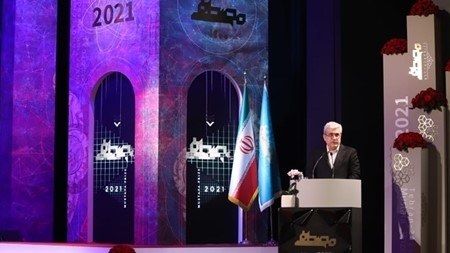
He continued: "Now, due to the common challenges that the great Islamic community faces, we see the importance of unity and empathy, and on the contrary, the effects of division."
Sattari stated that the Islamic society is always exposed to the choice of which representatives to introduce to present the image and message of Islam to the world, adding: "We know a suitable historical answer to this question based on the common heritage of the Islamic world;" In the so-called golden age of Islam, at the same time with the flourishing of science and art in Islamic countries, the voice and dress of Islam on the body and language of great scientific and cultural figures such as Abu Nasr Farabi, Maulana Jalaluddin, Omar Khayyam, Mohammad Ibn Musa Kharazmi, Ibn Sina, Ibn Haytham and many other prominent scholars of Islam.
The Vice President of Science and Technology, referring to the high position of scientists and famous figures of the Islamic world in the field of science and culture, continued: These personalities were transnational and now the works of each of them are considered as cultural treasures of several Islamic countries. The flourishing of Islamic society occurred simultaneously with the presence of such personalities and at a time and place where the image of Islam is presented in the context of science and culture.
"Science and technology" lays the groundwork for the interaction of Islamic society
The head of the policy council of the Mustafa Prize (PBUH), emphasizing that the Islamic society at present can pave the way for new subscriptions, said: Due to its transcultural nature, science and technology can serve as a framework for altruistic cooperation between Islamic countries.
The head of the National Elite Foundation spoke about Iran's experience of transitioning to a creative and innovative society and continued: I have come to believe that science and technology have sufficient capacity to work together to meet major global challenges, provided there is a common international will; Islamic countries, on the other hand, have great opportunities to create a common will for collective action through common cultural contexts.
Solving the challenges of Islamic society with the help of technologists and scientists
Referring to the role that technologists and scientists in Islamic countries can play in solving the current challenges of the Islamic community and the international community, the Vice President of Science and Technology said: In the current situation where Islamic countries are facing great social challenges, it is the responsibility of all the great thinkers and scientists of the Islamic world to act as the banner of common cultural initiatives.
Sattari considered the Mustafa (PBUH) Award as an opportunity-creating component to strengthen the fields of cooperation in the Islamic society and said: Thanks to this international award, networks of scientists from the Islamic world have been formed for a problem-oriented approach to science and technology.
Participation of 4,000 scientists in the Mustafa Prize
Mehdi Saffarinia, Secretary of the Policy Council of the Mostafa Prize (PBUH) and Head of the Campus Technology Park, also mentioned in a part of the ceremony that so far 9 Muslim scientists have received the Mostafa (PBUH) Prize in 3 periods and today 5 other nominees were introduced. And are appreciated, he continued: The Mustafa Prize (PBUH) has benefited from the participation of 500 active philanthropists and artists, and the Mustafa Museum and the accompanying ambassadors of the Prize have extended this popular movement on the path of strengthening and developing the knowledge of Islamic countries.
The head of the Technology Park of the Vice Chancellor for Science and Technology spoke about the presence of more than 50 science and technology personalities from 15 Muslim countries in this period of the Mustafa Award: Efforts were made to bring together the best of science and technology in the Islamic world and to empathize and coordinate to chart a better future for Islamic countries.
Saffarinia, referring to the implementation of public programs such as Science Cafe and scientific meetings and visits to strengthen these interactions, said: A network of 6,500 science and technology activists and technology centers has been formed, and so far 13 sessions of these science and technology meetings have been hosted by Islamic countries.
Referring to the holding of "Kanz" scientific competitions with the focus on problem-solving by young scientists, he said: These competitions have attracted one thousand applicants so far. The "Noor" student program has also brought together 15,000 students to activate the field of scientific and technological interaction at the international level to promote beneficial science.
The Secretary of the Mustafa Prize Policy Council also welcomed the 4,510 people and more than 400 works and the participation of more than one hundred judges in the fourth edition of the International Award and continued: During this period, 107 intellectuals from 72 scientific societies from 23 countries participated and scientific and technological crossroads of research and findings in the field of corona vaccine were presented in these meetings.
According to Saffarinia, the fifth period was held with the presence of 44 technology companies from 14 countries with 72 business meetings. Cultivating valuable talent in the form of Keynesian competitions in the second period managed to identify 63 challenges to be solved with the help of more than 6500 young science and technology activists.
The presence of "Bangladesh" and "Iran" scientists in the top of the Mostafa Prize
In the fourth round of the Mustafa Award (PBUH), 5 selected Muslims were introduced and honored in 2 groups of non-resident Muslim scientists from Islamic countries and scientists residing in Islamic countries. The $ 500,000 prize was jointly awarded to the winners of the two groups. In this ceremony, Professor Zahed Hassan, an activist in the field of semi-particles, topological materials, and Professor Kamran, the creator of Theory F, were selected in the section of selected Muslims living in non-Islamic countries.
Also, Professor Mohammad Sayegh, a physician and professor at the American University of Beirut and a transplant researcher, Professor Iqbal Chaudhry, a biochemist from the International Institute of Chemical and Biological Sciences, Karachi University, and Yahya Tialati, a professor of theoretical physics at Al-Khames University in Rabat, Morocco, have been nominated for Mostafa Award.
This award is given every two years to the top scientists and researchers of the Islamic world and promotes science education and research in Islamic societies by identifying, introducing, and appreciating the best of science and technology in the Islamic world.
This award is given to the winners in four fields of nanotechnology, biotechnology, basic sciences, and the public sector. This year, in the field of nanotechnology and biotechnology, according to the judgments made, there was no selected presence among scientists living in Islamic countries.
The call for the festival in 2019 was welcomed by 4,000 scientists and more than 910 science and technology centers. After reviewing the works with 20,000 people, information technology 67 works, biology and medicine 107, nano, 220 works were judged and 11 works reached the final stage. Finally, 5 works were recognized as worthy of praise.
Report from the Communication and Information Center in the Vice President for Science and Technology



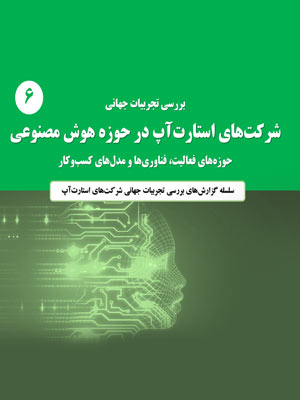


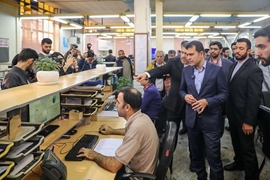
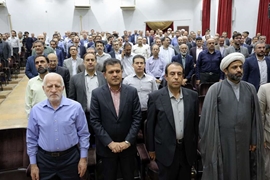
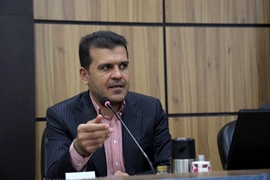
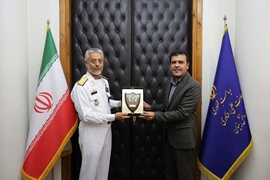

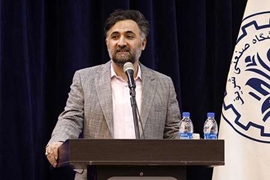
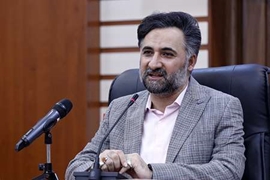
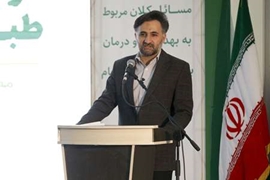
comment